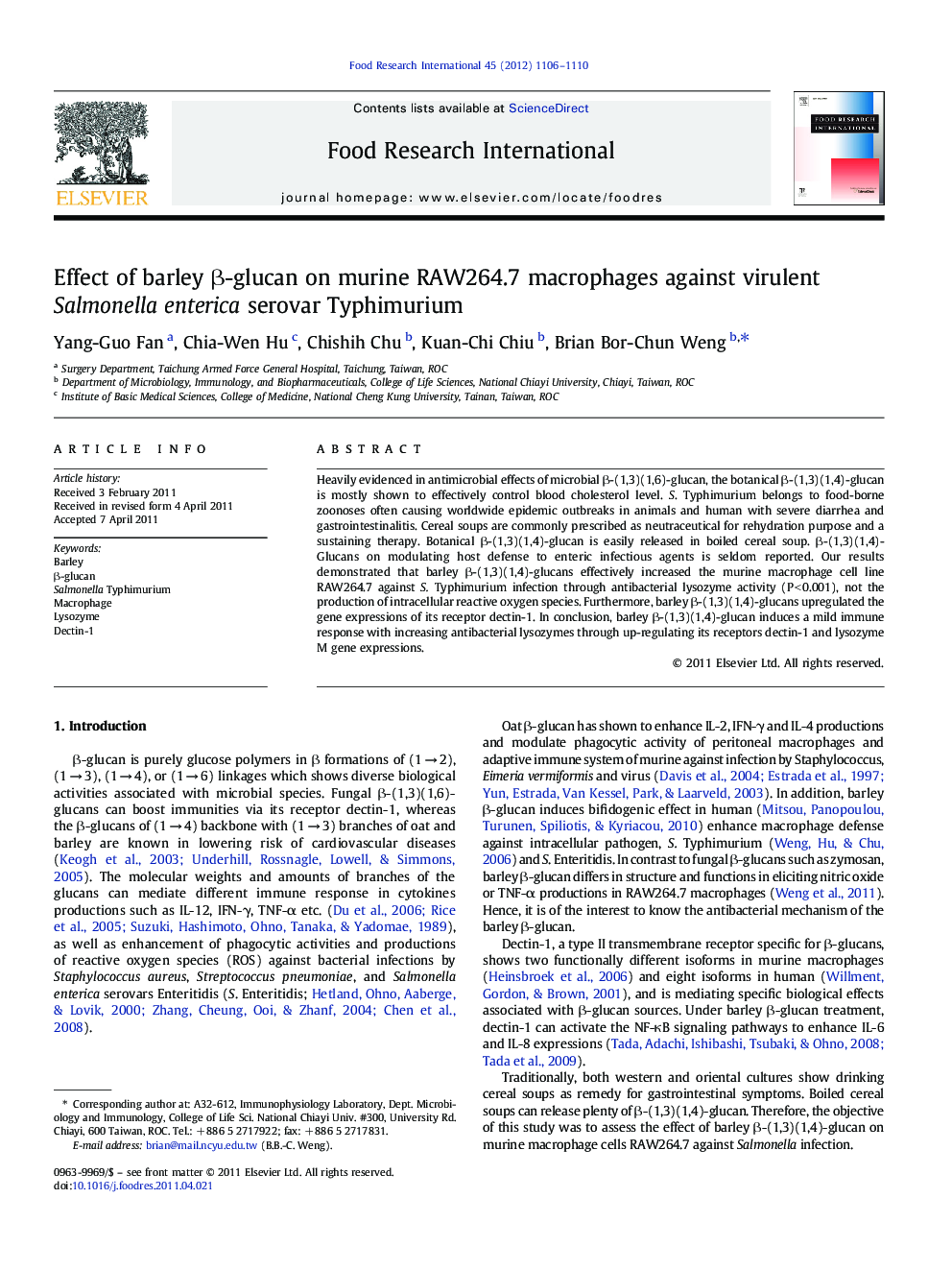| Article ID | Journal | Published Year | Pages | File Type |
|---|---|---|---|---|
| 4561776 | Food Research International | 2012 | 5 Pages |
Heavily evidenced in antimicrobial effects of microbial β-(1,3)(1,6)-glucan, the botanical β-(1,3)(1,4)-glucan is mostly shown to effectively control blood cholesterol level. S. Typhimurium belongs to food-borne zoonoses often causing worldwide epidemic outbreaks in animals and human with severe diarrhea and gastrointestinalitis. Cereal soups are commonly prescribed as neutraceutical for rehydration purpose and a sustaining therapy. Botanical β-(1,3)(1,4)-glucan is easily released in boiled cereal soup. β-(1,3)(1,4)-Glucans on modulating host defense to enteric infectious agents is seldom reported. Our results demonstrated that barley β-(1,3)(1,4)-glucans effectively increased the murine macrophage cell line RAW264.7 against S. Typhimurium infection through antibacterial lysozyme activity (P < 0.001), not the production of intracellular reactive oxygen species. Furthermore, barley β-(1,3)(1,4)-glucans upregulated the gene expressions of its receptor dectin-1. In conclusion, barley β-(1,3)(1,4)-glucan induces a mild immune response with increasing antibacterial lysozymes through up-regulating its receptors dectin-1 and lysozyme M gene expressions.
